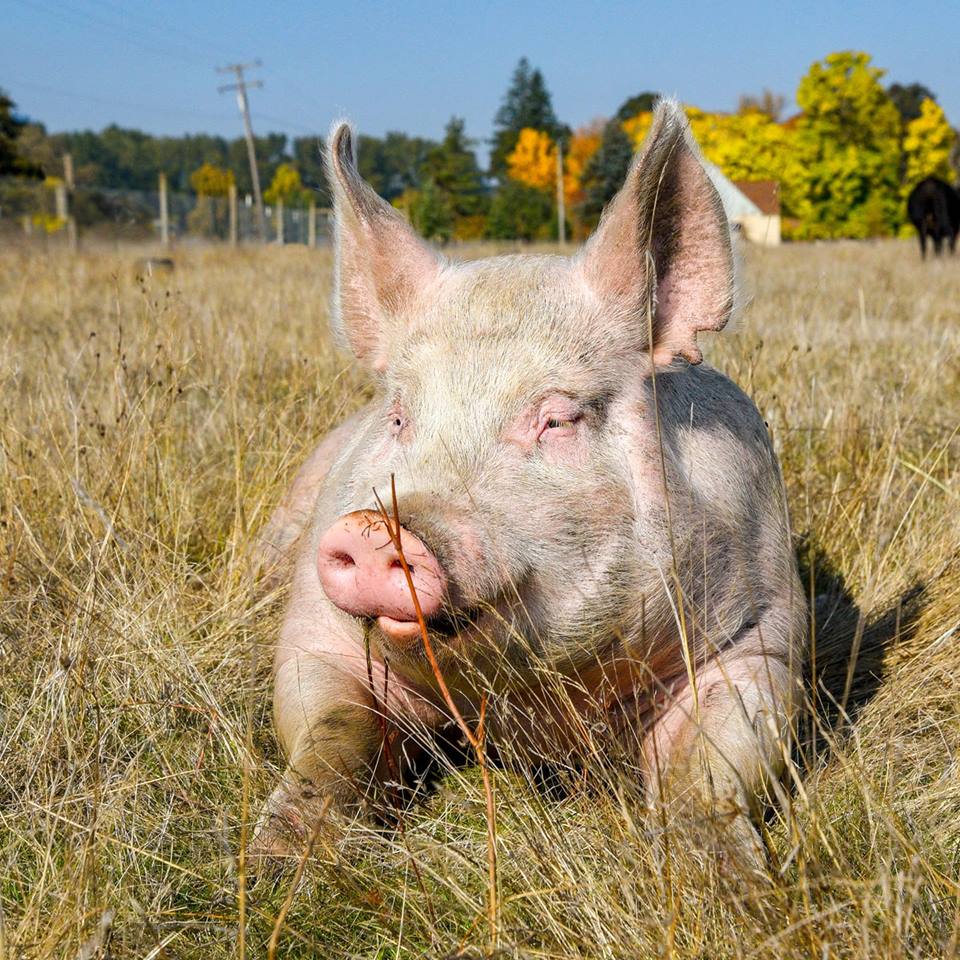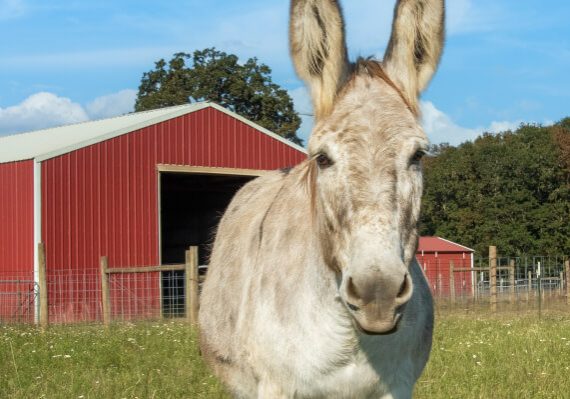
If you’re reading this, the chances are that you love animals and want to help create a kinder world for them. Every day we have the opportunity, with the language we use and the actions we take to make a compassionate future for animals a reality. Our goal is to help society see animals as equals – as individuals who are deserving of the same freedoms we enjoy. By actively changing the way we speak about animals we are encouraging others to see them as we do. We spend every day with rescued individuals, and through observing and interacting with them, we have found these five tips to be especially important when advocating on their behalf:
1. Not an “it.” The language we use is just as important as the actions we take when advocating for animals. When we refer to animals as an “it” we are essentially stripping them of their personhood. When you are having conversations about animals, use “they/them/theirs,” “who,” and “he/she.” Doing so will help people to start to see animals as individuals and not products. At Lighthouse, we also refer to our animal friends as people – both because we see them as equals, but also to elicit a conversation.
2. Autonomy. At Lighthouse, we do everything we can to ensure the individuals who live at the sanctuary have as much freedom as we can safely and comfortably give them. That means that they generally get to go where they want and make friendships with who they want. It is incredibly important when advocating for animals that we move away from the thinking that we are their “owners” or that we know better than they do. Animals are every bit as smart as we are and can make sound decisions based on what is best for them. We are here to make sure they have everything they need to be happy and healthy, not to control them.
3. Stop with the generalizations. We often hear people refer to animals as “child-like,” “innocent,” or “pure” as a way to evoke sympathy in others. Animals are unique and complex individuals with multi-faceted personalities, just like us. To generalize all animals as “child-like” is doing them a great disservice because it is implying that animals are only worthy of life if we see them as sweet, innocent and simple beings. All animals deserve a life free from harm, regardless of how we perceive them. Instead of reducing an animals individuality with generalizations when advocating for them, try to use words that evoke their personhood.
4. Hero worship. It is very common in the animal rights movement to hero worship- that is, placing a high level of praise on humans that advocate for animals and thus losing the real focus of our advocacy. Our focus should always be on the animals. THEY are the heroes of our stories. When advocating for animals, make them the center of your work. Tell their stories and share their photos. When you visit a sanctuary, instead of sharing a selfie with an animal with no caption, share the story of the animal’s rescue and talk about their personality. Avoid putting too much attention on individual activists.
5. Speak about animals as you would your best friend. The most important tip we can give you is to always speak about animals eloquently and with respect.
Do you have some more tips on how to better advocate for animals? Send them to info@lighthousefarmsanctuary.org, and we might share them in a blog!

